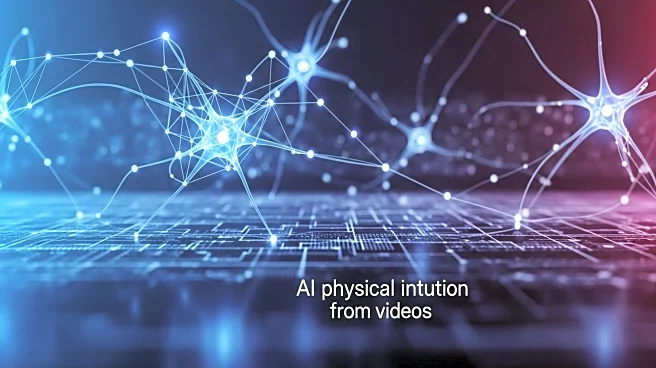What's Happening?
Meta has developed an AI system called Video Joint Embedding Predictive Architecture (V-JEPA) that learns about the world through videos and demonstrates a notion of 'surprise' when presented with information that contradicts its learned knowledge. V-JEPA uses latent representations to model video content, focusing on essential details rather than individual pixels. This approach allows the AI to understand intuitive physical properties, such as object permanence and the effects of gravity, with nearly 98% accuracy on tests of physical plausibility.
Why It's Important?
V-JEPA's ability to develop physical intuition from videos represents a significant advancement in AI technology. This capability is crucial for applications such as autonomous robotics, where understanding the physical environment is essential for planning movements and interactions. The model's success in mimicking human-like intuition could lead to more sophisticated AI systems capable of complex reasoning and decision-making. The development also highlights the potential for AI to enhance various industries, from transportation to healthcare.
What's Next?
Meta plans to further refine V-JEPA by addressing its limitations, such as encoding uncertainty and extending its memory capacity. The team is also exploring applications in robotics, using the model to plan actions based on video data. As V-JEPA evolves, it may become a foundational technology for AI systems across multiple domains, driving innovation and efficiency.
Beyond the Headlines
The ethical implications of AI systems with physical intuition include considerations of safety and accountability in autonomous decision-making. The cultural dimensions involve the integration of AI into daily life and its impact on human interactions. Long-term, the development of intuitive AI could reshape societal norms and expectations.










